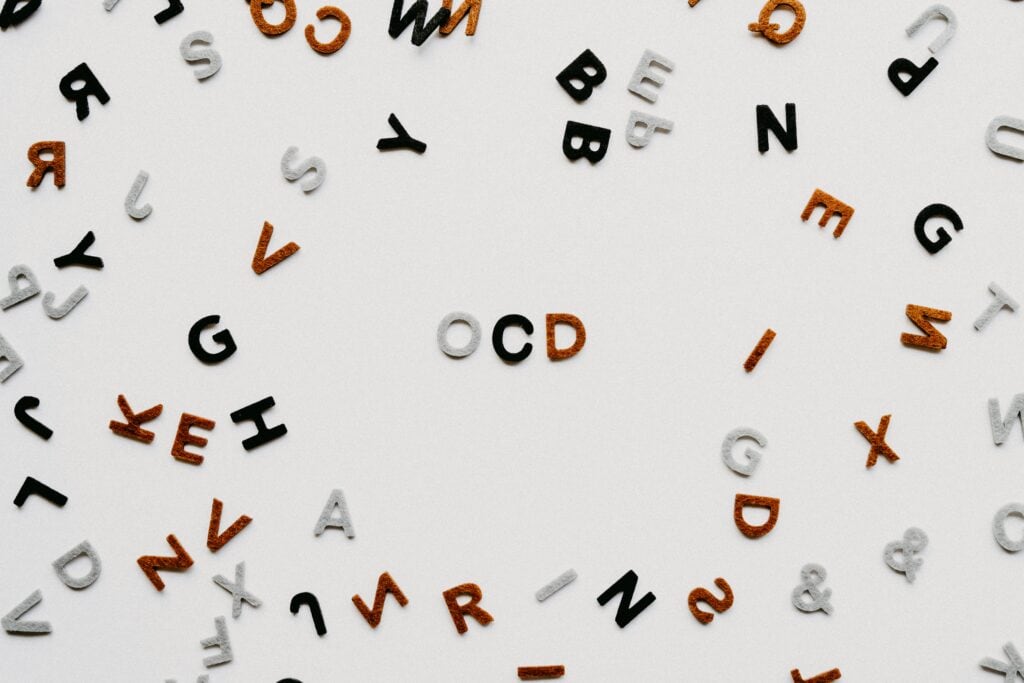My friend has a lot of behaviors that seem obsessive-compulsive. I want to help, but I don’t know the difference between obsessive-compulsive disorder (OCD) and obsessive-compulsive personality disorder (OCPD).
ANSWER:
NOTE: This article gives a brief overview of a complex topic. If you or someone you know is struggling with signs of OCD or OCPD, don’t try to self-diagnose. Instead, call our Counseling team at 1-855-771-HELP (4357) for a free phone consultation. They can give you referrals to licensed therapists in your area who specialize in treating OCD. You can also find resources through the International OCD Foundation’s website (iocdf.org).
What is obsessive-compulsive disorder (OCD)?
Obsessive-compulsive disorder is an anxiety disorder that usually has two parts: thoughts and behaviors. (However, a person with OCD can sometimes have obsessions without compulsions, and they can have compulsions without obsessions. This makes the disorder complicated.)
- Obsessions are persistent, unwanted thoughts about specific topics.
- Compulsions are behaviors a person uses to try to get obsessive thoughts out of their mind.
In short, someone with OCD often has intrusive, anxiety-producing obsessive thoughts. And to try to get rid of these unwanted thoughts, an individual with OCD often acts on compulsive behaviors (repetitive actions or rituals). They could also be consumed by a thought (urge) that they should do something — even if they don’t follow through.
For example, excessive handwashing is one of the best-known examples of a compulsion. The initial obsession that can lead to such behavior is ongoing, anxious thoughts about germs.
What is obsessive-compulsive personality disorder (OCPD)?
Obsessive-compulsive personality disorder is a syndrome that characterizes a person’s overall orientation toward life. OCPD is an expression of an individual’s entire personality, philosophy, and worldview.
People with OCPD tend to have strict and perfectionistic views. Someone who has OCPD wants everything organized by precise systems or methods. They love rules, regulations, order, and control. As a result, they usually struggle to connect with and relate to people who can’t or won’t submit to their exacting standards. And that can make the person selfish, judgmental, and withdrawn.
In addition, an individual with OCPD commonly starts projects with a lot of energy and enthusiasm. But if obstacles and imperfections arise, they leave those projects unfinished.
(OCPD is more common among men than women. Also, most psychologists agree that it can’t be diagnosed accurately until about 18 years of age.)
How can I help someone with OCD or OCPD?
Maintaining a friendship with someone who has OCD or OCPD can be incredibly hard. Some people choose to deny the condition even exists. Others give in and let the individual’s habits control their lives. However, both approaches can harm relationships.
How to address OCD
Someone with OCD might realize their obsessions are unrealistic yet still feel anxious and driven by compulsions. To help, gently challenge false or anxious thoughts that drive compulsive behaviors.
One way to do that is to separate the OCD from your loved one’s personality. For example, if your friend says, Do you think I should go back and check the door? you can respond, That’s your OCD talking, not you.
Keep your interactions as light and playful as possible. Humor can sometimes provide an objective point of view to help break the cycle.
How to address OCPD
OCPD is classified as a personality disorder. If your loved one has been diagnosed with OCPD, seeing a qualified mental health professional is the best way to improve and recover.
Treatment such as cognitive-behavioral therapy can help individuals with OCPD learn to question their basic assumptions about life and soften the rigidity of their outlook and behavior. (A thorough psychiatric evaluation should precede this approach.)
How to find professional help for OCD and OCPD
Call our licensed or pastoral counselors at 1-855-771-HELP (4357) for a free phone consultation. They’d be happy to talk with you about your situation. They can also give you a list of referrals to psychologists in your area who specialize in treating OCD and OCPD.
And for more information, visit the International OCD Foundation’s website, and read Brain Lock: Free Yourself from Obsessive-Compulsive Behavior. (Please note that both the website and book are secular, so we can’t guarantee that all their stances align with Focus on the Family’s Christian worldview. However, their content can be helpful.)
Resources
If a title is currently unavailable through Focus on the Family, we encourage you to use another retailer.
Brain Lock: Free Yourself From Obsessive-Compulsive Behavior — Jeffrey M. Schwartz and Beverly Beyette (available through online retailers and many local bookstores)












